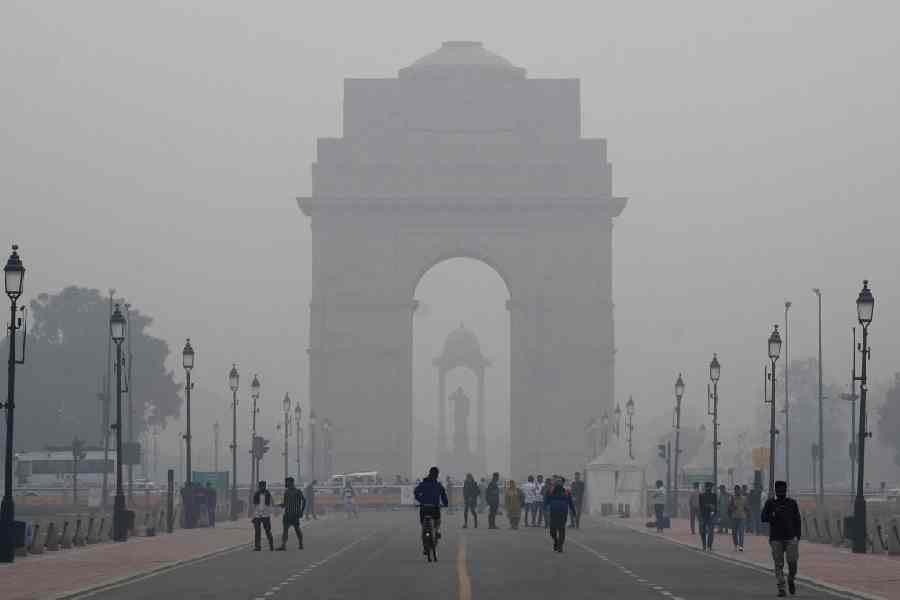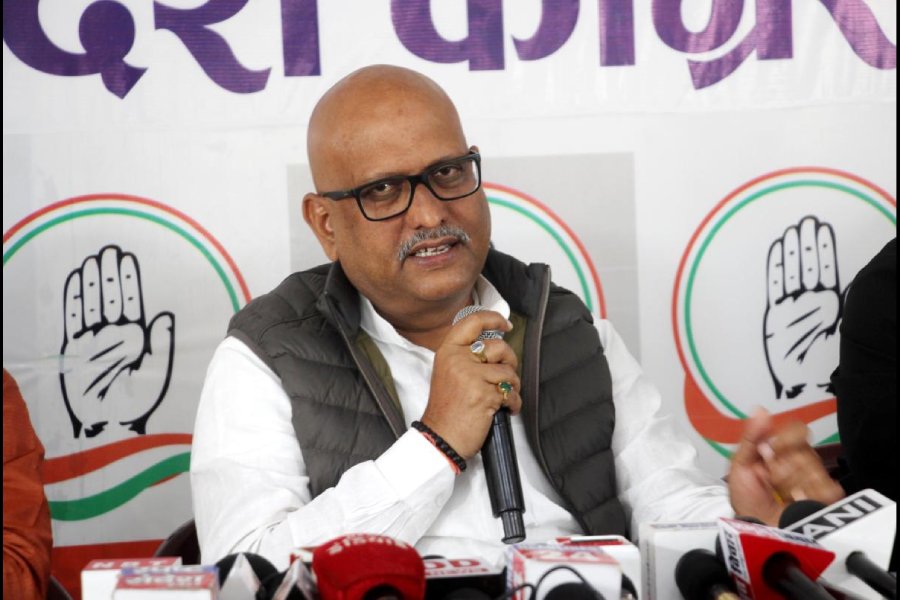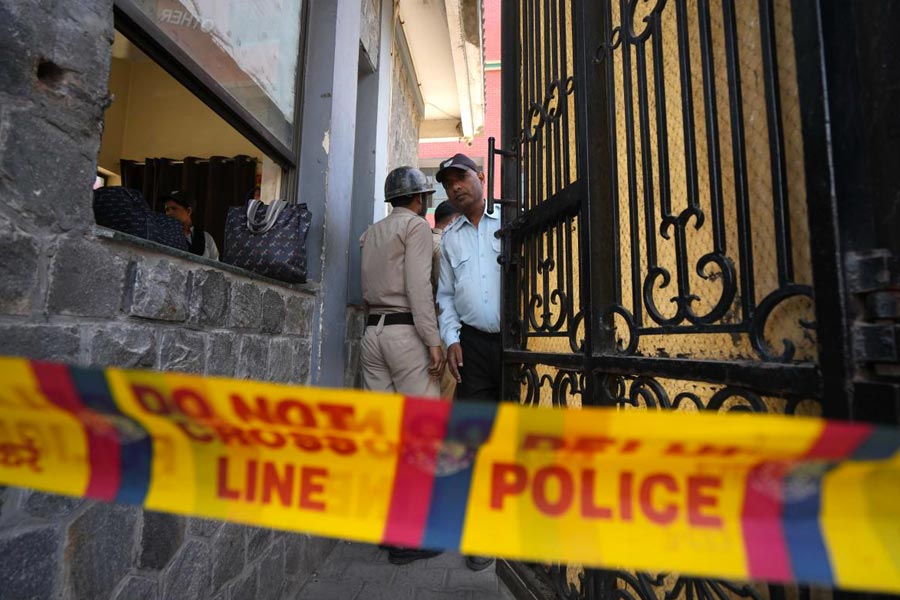Saroj, a 55-year-old construction worker residing near the Bakkarwala landfill site, embodies the challenges faced by informal sector workers amid the escalating air pollution crisis in Delhi.
In the wake of frequent construction bans to combat air pollution, Saroj found herself periodically unemployed for the past three months, grappling to make ends meet.
For people like her, whose primary income source is construction work, the shutdown presents a formidable financial setback.
"There has been no stable construction work since October (Diwali) and we have been sitting at home for three months now. The contractor informs us that work will only resume in a few months when the air pollution situation improves," she said.
Working in the construction industry, despite its polluting nature, has become an unavoidable necessity for these workers, exposing them to some of the most severe health repercussions.
"Fever, cough and cold and stomach issues are very common for us living close to and working on construction sites," Saroj said, shedding light on the health challenges she endures due to persistent exposure to pollution.
Delhi recorded its worst December in terms of air quality in 2023. The city's average Air Quality Index (AQI) for the month was at 348, the highest since 2018 when it had reached 360.
This led to the implementation of Stage III of the Graded Response Action Plan (GRAP) that involves a complete halt on construction and demolition work, except for essential government projects in Delhi and surrounding areas.
A recent survey conducted by Help Delhi Breathe and Mahila Housing Trust revealed that informal workers such as Saroj, particularly those residing near landfill sites in Delhi, bear the brunt of the adverse effects of pollution.
These workers grapple with challenges, including heightened exposure to outdoor activities, unfavourable working and living conditions, hazardous work sites and social discrimination.
The informal sector faces a significant blow to livelihoods due to a confluence of issues such as extreme cold, air pollution, heat stress, lack of green spaces, waste burning and open drainage.
Approximately 42 per cent of respondents in the survey expressed the opinion that the government should abstain from shutting down polluting companies, emphasising the imperative of preserving jobs.
The study covered 590 informal sector workers across Bakkarwala, Gokulpuri, Sawda Ghevra, Nand Nagri and Bhalswa.
Construction workers comprised the majority of informal settlement residents surveyed at 46.6 per cent, followed by waste pickers at 10.2 per cent and street vendors at 6.9 per cent.
The study revealed that the closure of construction sites not only results in job losses but also engenders uncertainty for these workers.
At 77 per cent, a substantial majority of respondents pointed to an inherent conflict between economic development and environmental protection.
Around 91 per cent reported falling sick due to deteriorating air quality. The survey further highlighted that 95 per cent of workers refrained from raising pollution concerns at their workplaces, primarily due to the fear of job loss.
Constant exposure to pollution and excessively long working hours emerged as top workplace concerns for 75 per cent of the respondents.
Many workers implement preventive measures at home and underscore the need for protective equipment for workplace safety.
"As construction activities are halted during high air pollution in Delhi, it is crucial to recognise how it impacts the already precarious livelihood and financial security of informal sector workers. Help Delhi Breathe and Mahila Housing Trust are diligently working to raise awareness on the issue and connect workers to social security schemes that can safeguard them," said Gurpriya Singh, a campaigner affiliated with Help Delhi Breathe, a citizen-led collective.
Mahila Housing Trust Director Bijal Brahmbhatt underscored the severe health challenges faced by informal sector workers due to Delhi's air pollution.
"Waste pickers at settlements such as Bhalswa are grappling with additional health issues, including contaminated water, toxic fumes from garbage burning, and handling toxic waste without adequate protective equipment," Brahmbhatt said.
Brahmbhatt emphasised the necessity for precise measures, including skill development and training programmes, to provide alternative employment opportunities and reduce dependence on waste-picking for livelihoods.
Singh of Help Delhi Breathe pointed out the complexity of the issue where industry shutdowns, aimed at combating air pollution, end up disproportionately affecting workers who contribute the least to the problem.
This pattern is observed not only in Delhi but across states, particularly in construction and brick kiln industries, Singh said.
She emphasised the vulnerability of women workers, who often bear additional burdens such as childcare at construction sites.
"Women workers are all the more impacted due to burdens of childcare at sites. They are usually assigned unskilled tasks and are paid less than men," Singh said.
Moreover, women tend to be the last to seek health care, further compounding their social, economic and health needs, especially in the context of air pollution impacts, she added.
Roshini Suparna Diwakar, a senior consultant with Mahila Housing Trust, underlined the urgent need to take action to protect construction workers from the hazardous nature of their work.
Simple solutions such as providing masks, sprinkling water and ensuring water and sanitation facilities can contribute significantly to the overall wellbeing of workers, she said.
Diwakar underscored the importance of looking at the issue holistically, with specific attention to implementing guidelines such as creche facilities to protect children from pollution.
Except for the headline, this story has not been edited by The Telegraph Online staff and has been published from a syndicated feed.










